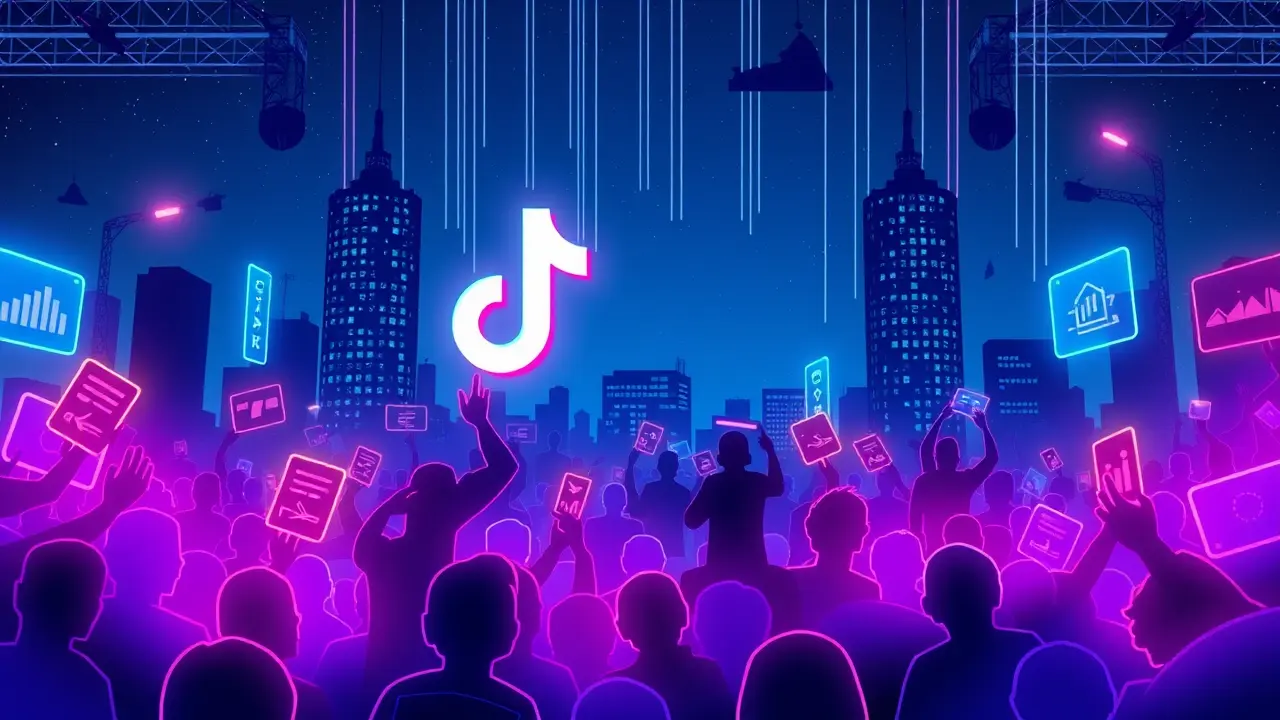Indonesia's TikTok License Suspension Raises Censorship Concerns
The digital landscape in Indonesia is reeling from a seismic government intervention that saw TikTok's operating license abruptly suspended, a move that was as swift as it was alarming, though ultimately temporary. This wasn't about a mundane regulatory infraction; it was a direct, forceful demand from the authorities for the social media giant to hand over user data connected to a wave of August protests, a demand TikTok refused, leading to an immediate and chilling regulatory crackdown.While the license was reinstated quickly, the damage was done, and the episode has sent shockwaves through the region, reigniting fierce scrutiny over online governance and sparking urgent warnings from digital rights advocates who see this as a dangerous precedent. Groups like Southeast Asia Freedom of Expression Network have labeled the legal framework underpinning such actions as deeply 'problematic,' pointing to the opaque nature of the data requests and the overt threats of sanctions as tools that could effectively freeze freedom of expression and institutionalize self-censorship among a population of over 100 million Indonesian users.This is not an isolated incident but part of a broader, troubling pattern in Southeast Asia, where governments are increasingly testing the limits of their power over big tech, using a blend of data sovereignty arguments and national security concerns to justify expansive control. The Indonesian government's posture echoes moves seen in Vietnam and Thailand, where internet sovereignty laws are being leveraged to monitor and manage online discourse, often with a thin veil of legal justification.The core of the conflict lies in Indonesia's Ministerial Regulation No. 5 of 2020, which grants the government sweeping authority to demand that private electronic system operators, which include all major social media platforms, provide access to data for law enforcement purposes, a provision critics argue is dangerously vague and open to abuse.This framework creates a precarious balancing act for multinational corporations: comply with potentially rights-violating demands and betray user trust, or resist and face existential business threats in one of the world's largest digital markets. The situation is further complicated by Indonesia's history with social media-fueled political movements, which makes the government particularly sensitive to coordinated online activity it cannot immediately monitor or control.For the average Indonesian citizen, the message is starkly clear: your digital footprint is not your own, and your participation in online assemblies, even peaceful ones, could place you in the crosshairs of state surveillance. This creates a palpable chilling effect, where users might think twice before posting, sharing, or even 'liking' content related to social or political issues, effectively muting a vital channel for public discourse.The long-term consequences could be a digital public square that is sanitized, subdued, and stripped of its democratic potential, a scenario that should concern not just Indonesians but the international community watching as a global blueprint for digital authoritarianism is being refined in real-time. The rapid reinstatement of TikTok's license suggests a calculated move rather than a full-scale retreat, a warning shot meant to demonstrate the state's power without completely severing ties with a platform integral to the nation's digital economy. It's a high-stakes game of chicken, and the fear is that next time, the suspension might not be so brief, forcing platforms into an impossible choice between their ethical commitments and their commercial survival in a critical growth market.
CU
CuriousCat11 hours ago
wait what if this is just a test run for a bigger crackdown later 👀 feels like they're just seeing how much they can get away with tbh
0
© 2025 Outpoll Service LTD. All rights reserved.
